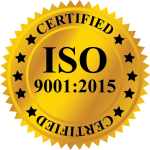Conducting effective interviews for healthcare positions is crucial to ensure that the right candidates are selected to provide quality care and maintain the integrity of the healthcare institution. This process involves more than just evaluating skills and experience; it requires assessing a candidate’s compatibility with the organization’s culture, their interpersonal skills, and their ability to handle the pressures of the healthcare environment. Here is a comprehensive guide to conducting effective interviews for healthcare positions.
- Define the Job Requirements Clearly
Before starting the interview process, it’s essential to have a detailed understanding of the job requirements. This includes:
– Technical Skills: Certifications, licenses, and specific medical skills needed.
– Experience: Relevant work history and specific experiences required.
– Soft Skills: Communication, empathy, teamwork, and problem-solving abilities.
– Cultural Fit: Alignment with the organization’s values and mission.
Creating a comprehensive job description that outlines these requirements will help in attracting the right candidates and setting clear expectations.
- Develop a Structured Interview Process
A structured interview process ensures consistency and fairness. This includes:
– Standardized Questions: Develop a set of questions that all candidates will be asked, focusing on both technical competencies and behavioral aspects.
– Interview Panel: Include multiple interviewers from different areas (HR, department heads, potential colleagues) to provide diverse perspectives.
– Scoring System: Create a scoring rubric to objectively evaluate candidates based on their responses.
- Pre-Screening Candidates
Before the face-to-face interview, conduct a pre-screening process to filter out candidates who do not meet the basic qualifications. This can be done through:
– Resume Screening: Review resumes to check for necessary qualifications, experience, and red flags.
– Phone Interviews: Conduct brief phone interviews to assess communication skills and confirm interest and availability.
- Prepare for the Interview
Preparation is key to conducting a successful interview. Ensure that:
– Interviewers are Trained: All interviewers should be trained on effective interviewing techniques and legal considerations.
– Review Candidate Information: Go through the candidate’s resume, cover letter, and any other relevant documents beforehand.
– Prepare the Environment: Ensure the interview setting is professional and free from distractions.
- Ask Effective Questions
The questions you ask should help you understand the candidate’s skills, experience, and fit for the role. Effective questions include:
Behavioral Questions:
– “Can you describe a time when you had to deal with a difficult patient? How did you handle it?”
– “Tell me about a situation where you had to work closely with a team to achieve a common goal.”
Situational Questions:
– “What would you do if you noticed a colleague making a mistake in patient care?”
– “How would you handle a situation where you have to deliver bad news to a patient or their family?”
Technical Questions:
– “What protocols do you follow for infection control?”
– “How do you stay updated with the latest developments in your field?”
Cultural Fit Questions:
– “What attracted you to our organization?”
– “How do you align your personal values with our mission and values?”
- Assess Interpersonal and Soft Skills
Healthcare positions require strong interpersonal skills and the ability to handle stress. During the interview, observe:
– Communication Skills: Clarity, empathy, and the ability to articulate thoughts effectively.
– Emotional Intelligence: Ability to manage emotions and understand the emotions of others.
– Problem-Solving Skills: How they approach complex situations and make decisions.
- Provide a Realistic Job Preview
Give candidates a clear picture of what the job entails. This can include:
– Day-in-the-Life Scenarios: Describe a typical day or shift.
– Challenges: Be honest about the difficulties and stressors associated with the job.
– Expectations: Clarify performance expectations, working hours, and other relevant details.
- Evaluate Cultural Fit
Cultural fit is critical in healthcare settings where teamwork and alignment with the organization’s mission are essential. Assess cultural fit by:
– Discussing Values: Ask candidates about their personal values and how they align with those of the organization.
– Observing Reactions: Pay attention to how candidates react to descriptions of the workplace culture and values.
- Conduct Skills Assessments
Depending on the position, it may be beneficial to include practical assessments or simulations. This can help evaluate:
– Clinical Skills: Through hands-on tasks or simulations relevant to the role.
– Critical Thinking: Through case studies or problem-solving exercises.
- Seek References and Conduct Background Checks
Before making a final decision, conduct thorough reference checks and background investigations to verify:
– Employment History: Confirm previous employment details and job performance.
– Credentials: Verify licenses, certifications, and educational qualifications.
– Background: Check for any history that may disqualify the candidate from the role (e.g., criminal records, malpractice claims).
- Make the Decision
After completing the interviews and assessments:
– Review Scores and Feedback: Consolidate the scores and feedback from all interviewers.
– Compare Candidates: Evaluate the candidates against the job requirements and each other.
– Discuss as a Team: Hold a meeting with all interviewers to discuss and decide on the best candidate.
- Communicate with Candidates
Finally, communicate your decision to all candidates. For the selected candidate:
– Extend a Job Offer: Provide a formal job offer detailing the role, compensation, and other relevant information.
– Onboarding: Begin the onboarding process to integrate them into the organization smoothly.
For those not selected:
– Provide Feedback: Offer constructive feedback if possible, which can help them in future applications.
– Maintain Professionalism: Thank them for their time and interest in your organization.
Conclusion: Conducting effective interviews for healthcare positions is a meticulous process that requires preparation, consistency, and a focus on both technical skills and interpersonal qualities. By following these steps, healthcare organizations can ensure they select candidates who are not only qualified but also a good fit for their team and capable of delivering high-quality patient care. This thorough approach will contribute to building a competent, cohesive, and compassionate healthcare workforce.










